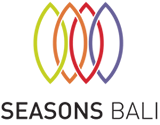Recovery isn’t just about putting the bottle down or staying away from substances. It’s also about rebuilding your entire life from scratch, brick by brick, habit by habit. And in our hyperconnected world, that means developing healthy boundaries with technology and social media, something that has become increasingly important for long-term sobriety success.
Many individuals are unaware of the extent to which their digital habits contribute to their addiction until they begin their recovery journey. Suddenly, those aimless scrolling sessions, which I had previously associated with drinking, no longer feel as dangerous. The Instagram stories of that party lifestyle are actual triggers.
The nonstop clamour of notifications induces the same restless anxiety that motivated them to use challenges, amplified in those crucial first 30 days of sobriety, when everything feels overwhelming and new.
Why Structure Matters More Than You Think
Our brain is an active construction site in early sobriety… It’s like someone mowed down the old building, but the new one hasn’t been built yet. In the absence of the repetitive patterns of an active addiction, there’s this big vacuum that has to be filled. Nature abhors a vacuum, right? If you don’t actively fill that space with healthy habits, unhealthy ones will slip back in.
You had a schedule during active addiction; it was just the wrong schedule. Get wasted to numb the previous night’s embarrassment, wake up hungover, and feel like you need something just to feel better again.
Plan how to get that thing, buy it or a stronger version, use it, and deal with the fallout, whether it’s medical or relational issues (which will lead you back to needing something to ease that pain too), and repeat. Take that cycle away without replacing it with another, and you’re floating.
At Seasons Bali, this message is inherently embedded into every facet of their holistic treatment. The programme offers regimented daily routines that include therapeutic work as well as rehabilitation activities.
Clients attend daily 12-step meetings and also attend educational workshops, but they are also given time for yoga and meditation or even a walk on the beach at sunrise. The routine isn’t rigid—it’s supportive.
The Hidden Danger of Digital Chaos
Here’s something most rehabs don’t talk about: Recovery from addiction to social media is increasingly becoming as important as recovery from alcohol and drugs. The dopamine hits from likes, comments and shares activate the same reward pathways in your brain as drugs and alcohol do.
When you’re raw in early recovery, these digital dopamine hits can act as substitute addictions — or worse yet, relapse triggers.
How many of you are reaching for the soothing balm of Instagram’s endless cheer in a moment of stress— an automatic, knee-jerk response? The same emotional states that led you to drink or use are now leading you to escape online.
The social media platforms are built to be addictive with variable rewards schedules and constant stimulation, meaning it is very difficult to sit through your uncomfortable feelings, a major skill required for long-term sobriety.
Studies from the National Institute on Drug Abuse conclude that repeated exposure to very rewarding stimulants actually decreases our capacity to experience pleasure from routine life, which is not the same thing as social media abuse in recovery.
Creating Digital Boundaries for Sobriety
Digital boundaries aren’t about going off the grid — they’re about mindful technology use. You wouldn’t have alcohol in the house during early recovery, either, so think about digital environments that do or don’t foster your sobriety.
Begin by pinpointing the online triggers: party photos that include drinking friends, accounts that glorify substances of abuse or dating apps with “wine culture” coded into their logos. These triggers demand the same sort of strategies one might use to stay sober when everyone around you still drinks or uses it, but only in digital spaces.
You have more say over your digital surroundings than tangible rooms. Unfollow, mute keywords, use the app’s timer, create phone-free zones, and start the morning with meditation instead of scrolling.
At Seasons Bali, clients are taught to recognise these patterns through one-on-one and group therapy for substance triggers and problematic relationships with technology.
Building Your Daily Framework
A solid daily routine for recovery is built gradually, with intention and flexibility. It needs to be YOUR routine, not something copied from someone else’s Instagram story.
Morning, Foundation.
How you start sets the tone for everything. Instead of immediately reaching for your phone, create a morning buffer zone—five minutes of deep breathing, making your bed, or stepping outside.
Start small. If you usually check social media first thing, delay it by 10 minutes while you drink water. The goal is to create intentional space between waking up and digital stimulation.
Structured Middle Hours
There should be anchor points in your day – activities you do around the same time. But schedule recovery activities as well – not just work and meals.
At Seasons Bali, clients sign up for group sessions, counseling, educational lectures and recovery activities such as art therapy. This network creates new sober connections.
Evening Wind-Down
Late-night social media surfing moves in to let anxiety and depressive thoughts percolate, which used to drive you to use it.
Keep it simple: put your phone on aeroplane mode an hour before bed, read physical books instead of digital content, or do gentle stretching. Signal to your brain: it’s time to rest.
The Social Media Detox Reality Check
Let’s talk about social media detox in recovery because there is negative advice flying left and right. For some people, quitting all social media channels entirely, cold turkey, is feasible and sustainable. But for most people it’s just not possible or practical.
Mindful consumption beats elimination:
- Follow the right accounts and content sources
- Understand the difference between using social media as a weapon and as an escape.
- Dedicate specific times for socialising rather than scrolling mindlessly.
- Quality connections over quantity of followers.
Benefits of reducing digital noise:
- Better quality of sleep and less anxiety
- More meaningful conversations with people in recovery
- Increased self-awareness of emotional triggers and patterns
- Avoided excessive focus on real-world recovery-type things
In treatment programmes, such as those at Seasons Bali, there is usually a reduction in device use during the initial phase, which gives clients the perfect opportunity to reflect on their relationship with technology. This is not so much punishment but rather an opportunity to reset those digital habits and learn life without constant connectivity.
Dealing with Online Triggers in Addiction Recovery
Even when you think there are no triggers, online triggers can creep in and up on you. a harmless scroll through what seems to be an innocent “wine Wednesday” post or drinking meme. These are not the physical kind of triggers that one can watch out for.
Do not be afraid; have a plan. If something triggers you, put your phone down and call your sponsor. Remind yourself to make a phone call – reach out – to another member or do something else healthy right now.
These approaches are developed as part of an integrated multi-dimensional counseling program. At Seasons Bali, clients learn to identify triggers and practise healthy responses they can use in real-life situations within virtual environments.
Practical Steps for Implementation
Start small: not checking your phone for 30 minutes after waking, scheduling daily recovery reading, or committing to afternoon walks.
Track what works. Recovery is personal; pay attention to activities that genuinely help versus those you think you should do.
Create accountability by sharing goals with sponsors, therapists, or friends. Join recovery communities focused on healthy lifestyle development.
The Connection Between Structure and Freedom
It may seem odd, but more daily structure means more freedom. Because we waste precious mental energy on what should be mundane decisions, we have less of it to invest in creativity, relationships and meaningful targets.
When you were in active addiction, days were chaotic but actually controlled by the drive to get and use. That is not freedom — it’s compulsion with a few extra steps. Real freedom means making conscious decisions about how you spend your time and maximise your energy.
At Seasons Bali, clients commonly report a greater sense of freedom and authenticity while in treatment than at any time in years past — even though they have objectively less autonomy. Structure creates safety and predictability, which enables authentic choice.
Long-term Sustainability
It’s not about perfect routines forever; it’s about the habits and skills needed for recovery over time. Life will throw curveballs. Illness, travel, changes at work or family emergencies disrupt the routine. The secret is to have a home you can come back to.
At places like Seasons Bali, they help clients practise maintaining recovery routines while on a path back to life. It is one thing to keep up beneficial habits in controlled conditions and another when work stress and relationship struggles hit.
Sustainable habits are adjustable, not set in stone. Nonnegotiables, including daily activities in recovery, are part of it, but specifics may evolve with changing circumstances. They are driven by the pursuit of progress rather than being obsessed with perfection and they make mistakes just to get feedback.
For some people, it doesn’t come naturally to form healthy daily habits and that can require a long time and a lot of effort, maybe even a session with someone who knows what they’re doing. But now you are building a life that actually feeds your well-being — one that you don’t need to escape from because you genuinely enjoy living it.
Recovery is not just about stopping harmful behaviours. It’s about building a life so good that old coping mechanisms are no longer necessary. Trying to get professional help setting that foundation can often be a gift of gratitude from yourself to all who care about you.




